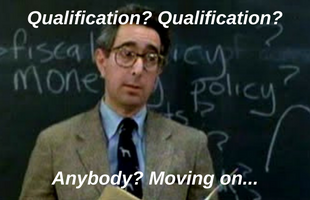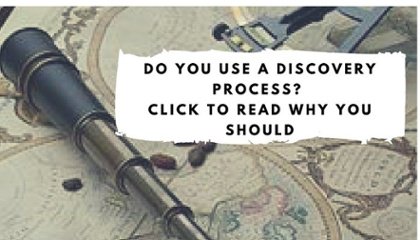 You’ve heard the saying (probably from your mom or grandmother), “You have two ears and one mouth so you ought to listen twice as much as you speak.” This is especially true in sales. It’s been drilled into us that we should be good listeners. But have you ever probed your customer for more information only to get back 1-2 word answers or worse, a blank stare? Kind of feels like that famous scene out of “Ferris Bueller’s Day Off” – “Bueller? Bueller?” I feel this way sometimes when I talk to my teenagers. If you’re a parent of a teen or just know teens, you know that sometimes being a good listener isn’t enough. You have to ask the right questions. Just as with children, knowing what to ask (and when to ask it) will help your customer to open up more about his needs and issues.
You’ve heard the saying (probably from your mom or grandmother), “You have two ears and one mouth so you ought to listen twice as much as you speak.” This is especially true in sales. It’s been drilled into us that we should be good listeners. But have you ever probed your customer for more information only to get back 1-2 word answers or worse, a blank stare? Kind of feels like that famous scene out of “Ferris Bueller’s Day Off” – “Bueller? Bueller?” I feel this way sometimes when I talk to my teenagers. If you’re a parent of a teen or just know teens, you know that sometimes being a good listener isn’t enough. You have to ask the right questions. Just as with children, knowing what to ask (and when to ask it) will help your customer to open up more about his needs and issues.
A strong set of discovery questions early in the sales process will get information from the customer without feeling like pulling teeth. Additionally, it will start to build a trusting relationship with your customer. Great questions will typically get great answers. As the customer gets more comfortable with you and the questions, the answers will become more detailed. The customer will start telling you more of the “between the lines” information that really addresses their pain points.
Questions, Questions, Questions…and Answers
Before your sales team hits the streets for their next big sale, ask a few questions:
- Do we start by asking questions about the customer’s business? What are these questions?
- Do we know how to handle any push back to “get to the point and just tell me about your solution”?
- Do we ask probing questions that demonstrate we want to solve their issues and help their business succeed? Or do we only ask technical questions that can be answered with a simple quote and price list?
Now, your sales team comes back with all their questions answered. Hooray! Now what? Consider this:
- Who sees these answers besides the sales person? Are they shared with a sales engineer or anyone in operations? With the sales manager?
- Do the answers get repeated back to the customer in the proposal or scope of work?
- Does the proposal demonstrate how your solution resolves the customer’s specific issues?
The answers to all of these questions should enlighten everyone on the team about the effectiveness of the qualification process. For example, if you find that sales reps are only asking the most basic of questions about the business that can easily be found with a simple web search, then it might be time to review your company’s qualification questions and/or provide additional sales training.
It is critical that your sales team is properly equipped with discovery and qualification questions that help the customer better tell his story. This gives the sales rep a clearer picture of short and long term goals and how your solution will help meet those goals.
Empower Your Sales Team
But you can’t stop there. As with most things, this process should always be evolving. Set a time each quarter to have a team brainstorming session while reviewing your qualification process. Working to continually fine tune this process is critical. The review should include actual customer situations as well as looking at best practices in your industry and sales in general.
Having a strong qualification and discovery process helps connect the dots between all parties involved allowing for more selling time. If your sales team has all the information up front by asking the right questions, then there is less time wasted spinning wheels and running back and forth to get the right answers. You can empower your sales team to sell more in less time with the right questions up front.

Do you face challenges during the discovery and qualification sales stages? Read how CorsPro can help you overcome these and other challenges here.
Email us to to schedule a time to talk live about challenges your team may face anywhere in the sales process.